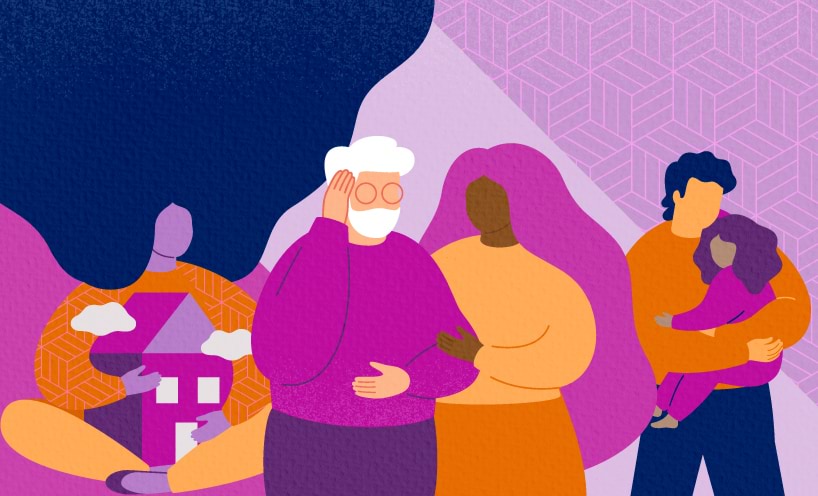- Published:
- Tuesday 30 March 2021 at 11:00 am
Lucinda (name changed to protect privacy) knows exactly how hard and disheartening it can be to find support and advice when leaving a situation of family violence.
‘There are so many gaps in the system, from knowing where to go next for support and how people actually deal with you, to mis-information and dealing with forms and processes,’ she said.
‘I have several degrees and a successful career as a project manager in the corporate world and yet I found navigating the whole process so difficult and discouraging.
‘It’s important to acknowledge that family violence can happen to anyone, no matter who you are or where you live, and many people face challenges in accessing legal help.’
Sharing perspectives
Lucinda is now bringing her experience and insights to one of the working groups helping to inform the design of legal services for the Specialist Family Violence Courts (SFVCs).
‘It is invaluable to have the knowledge and perspectives of Lucinda and our other lived experience consultants to make sure we provide services people truly need, not just what we assume they need,’ said Leanne Sinclair, Associate Director, Family Violence.
‘We can’t create services that meet the needs of our clients without their input, so we have people with a lived experience involved at all levels of our SFVCs project,’ said Leanne.
Lucinda is one of two lived experience advisors on a service design working group which includes representatives from Victoria Legal Aid, community legal centres, Magistrates’ Court of Victoria, Victoria Police and family violence specialist services.
‘It has been a fantastic and very collaborative process,’ said Lucinda.
‘I think it has really opened some people’s eyes about what people need at a point in time, whether that is housing, social support, legal assistance to speak to the police or protection from their perpetrator at court.
‘From a technical perspective, professionals think they’re providing x, y and z services, but how that filters down to a lay person or a victim of family violence can be very different,’ said Lucinda.
‘We are really looking at the whole journey people experience when they decide to leave a situation of family violence and putting the human at the front of that process to look at what really matters to them not what VLA or the justice system thinks is important.’
She is pleased VLA is running the project to help co-ordinate the way different services can work together to support people experiencing family violence.
‘Many people will be contacting VLA or community legal centres for help with family violence, often it will be the first place they contact, so it’s very, very easy to get disheartened if you don’t get assistance or guidance for the next step.’
Sustainable and systematic change
Creating sustainable and systematic change for people leaving family violence is a key motivator for Lucinda.
She believes preventing family violence should be tackled with the same systematic approach brought to reducing road injuries and deaths.
‘If you think about what happens when an ambulance attends a road accident, all the other cars know to give the ambulance a path to get to the accident and to take the injured people to hospital. The hospital will have the trained people available and other emergency staff to deal with that trauma. Roads are maintained for safety and we have blood alcohol testing regimes. There’s a holistic and systematic approach, and we need to start dealing with family violence in the same way,’ said Lucinda.
This is not just somebody’s problem it is everybody’s problem and we need to start approaching it in this way.’
Prevention is key
For Lucinda, part of that approach must include a focus on preventing family violence before it occurs through educating children and young adults about respectful behaviour and healthy relationships.
And she says it will be crucial to ensure the lessons from this project continue to be implemented and refined into the future.
‘It would be fantastic to incorporate more technology to help fill the gaps in support we are identifying,’ said Lucinda.
‘When you’re leaving a situation of family violence having one source of truth about the services and support available would make it so much easier.’
More information
Read more about our work designing legal services for Victoria’s Specialist Family Violence Courts, including our client first approach.
Read more about our Client-first Strategy.
Get help for family violence.
Updated


